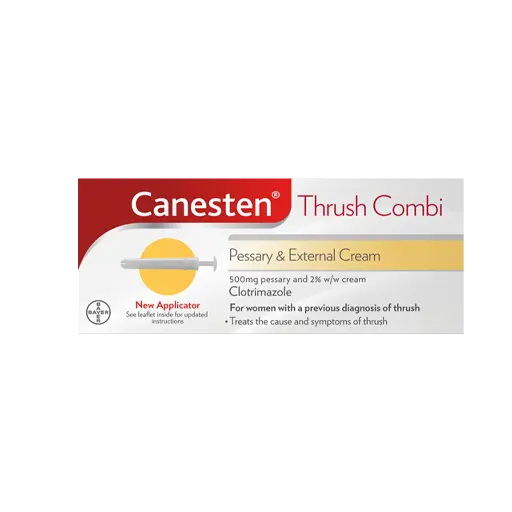Understanding Vaginal Thrush
What is Thrush?
Vaginal thrush, also called a yeast infection, is caused by an overgrowth of a fungus called Candida albicans. This fungus normally lives in small amounts in the vagina, mouth, and gut without causing any harm. However, when the balance of microorganisms in the vagina changes, Candida can multiply and lead to an infection. Vaginal thrush is a common condition that many women experience at least once in their lifetime. Although it can be uncomfortable and unpleasant, it’s generally easy to treat and is not considered dangerous. It's important to note that thrush is not a sexually transmitted infection (STI), though it can sometimes be triggered by sexual activity.
What Causes Thrush?
Thrush is caused by an overgrowth of Candida in the vagina. Several factors can disrupt the natural balance of microorganisms and lead to this overgrowth. Here's some causes of and why the cause thrush:
- Antibiotics:Antibiotics kill not only harmful bacteria but also the good bacteria that help keep yeast like Candida under control. Without these protective bacteria, Candida can grow unchecked.
- Hormonal Changes: During pregnancy, menstruation, or while using hormonal contraceptives (like the pill), the balance of hormones can shift. Higher levels of estrogen can encourage Candida growth, making thrush more likely.
- Weakened Immune System: If your immune system is weakened—due to illness, stress, or medications like corticosteroids—your body may struggle to control the yeast, leading to thrush.
- Diabetes: High blood sugar levels provide a more favorable environment for yeast to grow. In people with poorly controlled diabetes, this can be a contributing factor to recurrent thrush infections.
- Tight or Synthetic Clothing: Wearing tight-fitting clothes or synthetic underwear can create a warm, moist environment where yeast thrives. Cotton underwear and loose clothing are better options to allow airflow and reduce moisture.
- Use of Irritants: Scented soaps, bubble baths, and feminine sprays can upset the natural pH balance of the vagina, making it easier for yeast to multiply.
Symptoms of Thrush
Vaginal thrush has several distinct symptoms, though not everyone experiences all of them. Common symptoms include:
- Itching and Irritation: One of the most common signs of thrush is intense itching around the vagina and vulva (the outer part of the female genital area). This itching can range from mild to severe and is often accompanied by redness and swelling.
- Thick, White Discharge: Many women with thrush notice a thick, white vaginal discharge that looks similar to cottage cheese. The discharge is typically odourless, though some people may report a slightly yeasty smell.
- Soreness and Pain: The irritation caused by thrush can lead to soreness in the vaginal area, making activities like sex and urination uncomfortable. Some women also experience burning sensations when they pass urine.
- Pain During Sex (Dyspareunia): Vaginal thrush can cause discomfort or pain during sex due to inflammation of the vaginal tissue. This pain typically subsides once the infection is treated.
- Redness and Swelling of the Vulva: In some cases, the external genital area (vulva) may become red, swollen, and sore. This can make daily activities, like walking or sitting, uncomfortable.
Thrush VS Bacterial Vaginosis
While thrush and bacterial vaginosis (BV) are both common vaginal conditions, they have distinct causes, symptoms, and treatments. Misdiagnosing one for the other is possible, so understanding the differences can help guide the correct treatment.
| Symptoms | Vaginal Thrush (Yeast Infection) | Bacterial Vaginosis (BV) |
|---|---|---|
| Discharge | Thick, white, and "cottage cheese"-like; odourless | Thin, watery, and grey or white with a fishy smell |
| Odour | Usually odourless, or sometimes a mild yeasty smell | Strong fishy odour, especially after sex |
| Itching | Intense itching and irritation around the vagina and vulva | Little to no itching or irritation |
| Vaginal pH | pH remains normal (around 4.0 to 4.5) | pH becomes more alkaline (above 4.5) |
| Pain During Sex or Urination | Common with thrush due to irritation | Less common, but discomfort can still occur |
| Caused by | Overgrowth of yeast (Candida albicans) | Imbalance of good and bad bacteria in the vagina |
Key Points:
- Discharge: While thrush typically causes thick, white discharge, BV results in a thinner, watery discharge that may have a greyish tint.
- Odour: The discharge from BV has a distinct fishy smell, especially noticeable after sex, whereas thrush discharge is usually odourless or slightly yeasty.
- Itching and Irritation: Thrush often causes intense itching and soreness in the vaginal area, while BV usually doesn't cause much itching or irritation.
- Vaginal pH: Thrush doesn’t typically change the acidity of the vagina, but BV raises the pH, making it more alkaline. A vaginal pH test can help distinguish between the two.
Treating Thrush
There are several effective treatments for vaginal thrush, depending on the severity and frequency of the infection. Most of these treatments are available without a prescription, but it’s always a good idea to speak to a healthcare professional if it’s your first time experiencing thrush or if the infection keeps coming back.
- Antifungal Creams
These are applied directly to the affected area to reduce symptoms like itching and soreness. One popular over-the-counter option is Canesten Cream, which contains clotrimazole, an antifungal agent. This cream can provide quick relief from symptoms while treating the infection. - Pessaries
A pessary is a tablet that you insert into the vagina, where it dissolves and delivers antifungal medication directly to the infected area. Canesten Combi is a popular option, as it combines both a pessary and an external cream to treat both the internal infection and external symptoms. - Oral capsules
For those who prefer not to use creams or pessaries, an oral antifungal treatment called fluconazole is available. This comes in the form of a single-dose capsule, which works by targeting the yeast from within the body. Fluconazole is convenient and typically effective within a few days, but it’s important to consult with a doctor before using it if you’re pregnant or breastfeeding. - Canesten Combi
The Canesten Combi treatment includes a pessary for internal treatment and a cream to soothe external itching and irritation. This combination ensures that both the cause and symptoms of the infection are addressed.
In general, treatment should start to work within a few days. If symptoms persist beyond a week or keep coming back, it’s important to see your doctor for further evaluation.
Frequently Asked Questions (FAQs)
1. Is vaginal thrush a sexually transmitted infection (STI)?
No, thrush is not an STI. However, it can sometimes be triggered by sexual activity, but it is not spread through sex.
2. Can I get thrush from taking antibiotics?
Yes, antibiotics can kill not only harmful bacteria but also the good bacteria that help control yeast. This imbalance can lead to an overgrowth of Candida and cause thrush.
3. How long does it take for thrush to go away with treatment?
Most thrush infections clear up within a week with appropriate treatment. If symptoms persist beyond this time or if they keep recurring, it’s important to consult a healthcare professional.
4. Can I still have sex if I have thrush?
It’s best to avoid sex while you have thrush, as it can be uncomfortable and may delay healing.
5. Can thrush affect pregnancy?
Thrush itself doesn’t harm the baby, but it can be uncomfortable for the mother. If you’re pregnant and have symptoms of thrush, it's important to seek medical advice for safe treatment options.
Sources
NHS: Thrush in men and women
NICE: Candida - Female genital
Better Health Victoria: Vaginal Thrush
Related products
-
P
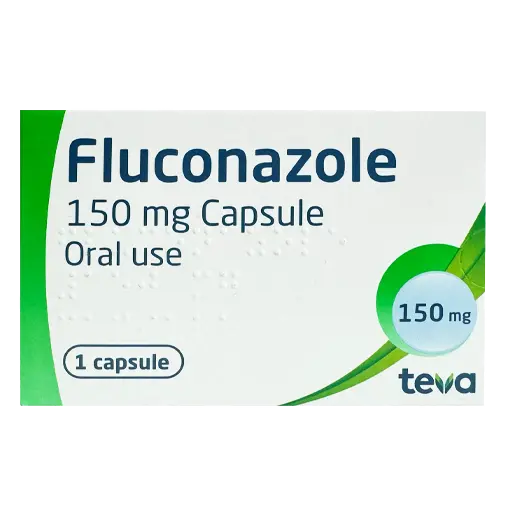
fluconazole capsule
£1.99
-
P
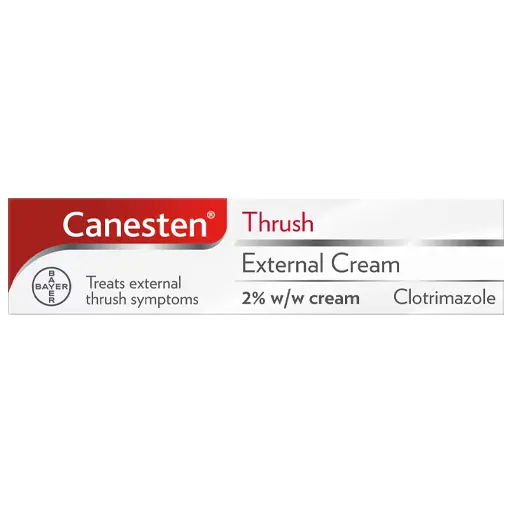
canesten cream
£5.99
-
P
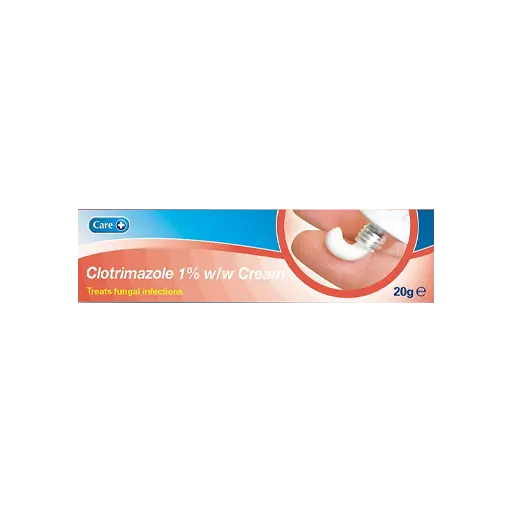
clotrimazole cream
£1.99
-
P
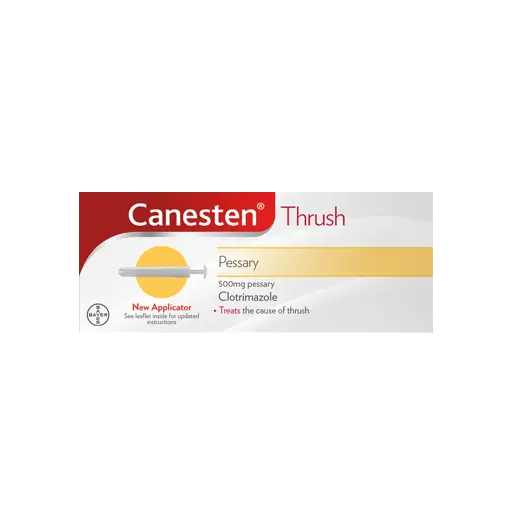
canesten pessary
£9.49
-
P
